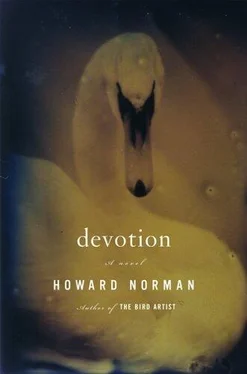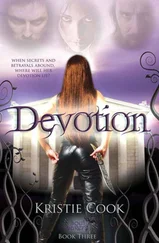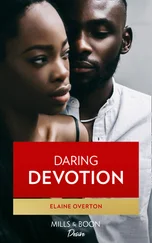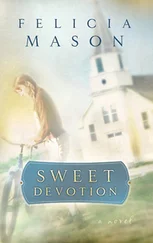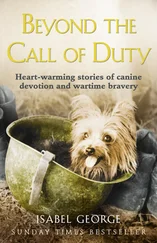“Well, you can have the whole thing. Including the deep dark secrets of my accounting methods and tax deductions. You can have my practice lock, stock and barrel, Dr. Bloor.” And then he named a price.
Dr. Frame mailed notices of his retirement, which contained a request to welcome Dr. Naomi Bloor. Her first full day at the clinic was diverse, also exhausting. Since she wanted to make a good impression, she spent an inordinate amount of time with each patient and owner. That day, between 7:45 A.M. and 6:15 P.M., she removed porcupine quills from the face and inside the mouth of a mutt who whimpered nonstop, licking the pliers as if pleading directly with them (from 12:30 to 1:00, while she ate a tuna sandwich at the bakery, Dory Elliot told her, “Mrs. Ebbet stopped by, not expressly to say so, but still, she did say you handled yourself well with those porcupine quills. I don’t mean to make a pun, but Mrs. Ebbet can be prickly. You got an A-plus on your report card is what I’m saying”); gave regular checkups to three other dogs; put drops of medicinal astringent in the ears of a cat with ear mites. Late in the afternoon a woman from Great Village, Constance Sugrue, called, distraught that her four-year-old daughter, also Constance, used their parakeet’s droppings as fingerpaint. “She painted a whole nativity scene on a sheet of manila paper,” she said. “I think she inhaled something went to her brain, because why else would she paint a nativity so far from Christmas?” Naomi said, “I don’t have a strong background in parakeets, Constance. I’d call your family doctor. My opinion? I don’t think harm was done.”
Driving her pickup home to her one-story house in Parrsboro that evening, Naomi stopped to buy a piece of salmon, head of lettuce, tomato, scallions, bottle of olive oil, bottle of vinegar, bottle of white wine. It was a warm night out, a salty breeze off the Bay of Fundy. Listening to the radio, she made oil-and-vinegar dressing, tossed the salad, broiled the salmon. Near dusk she sat on her porch, ate dinner and drank two glasses of wine. Three boys pedaled past on bicycles; they’d each fastened a playing card to the frame with a clothespin and the cards fluttered against the spokes. I’ve come into a good situation here , she thought. I already know Parrsboro a little bit and like what I know. I’m well past my stupid marriage. Today was a useful day. I’m going to eat my supper and not drink this whole bottle of wine, because I’ve got an 8 A.M. appointment. It’s Mrs. Boomer-Bower’s springer spaniel, Berenice. Mrs. Boomer-Bower told Naomi on the telephone, “My house is on the dirt road off Route 2, just before the cemetery.” Naomi wrote this down on a file card.
William had apprised Naomi of the general situation between Maggie and David. (“They’re still married on paper,” he said.) “I can’t think about it much,” Naomi said. “I wasn’t invited to their wedding, as you know. Still, I wish them the best.” However, after David was caretaker for a month, she was flirtatious with him, mostly by indirection. She was scarcely conscious of this at first, then did it on purpose. While examining the swans, she sometimes filled David in on local gossip, talked “out of school” about her women friends’ “social lives.” She had something of a raunchy sense of humor, though David felt she forced it a little. Dory Elliot called her “high-strung.” David found her nice to look at, certainly that; he never confided in her, however, tried never to be anything but civil and direct in her company. He sometimes ran into her at the bakery; they’d had coffee together. He valued her intelligence, her veterinarian’s know-how.
Naomi had other designs. Designs that seemed plausible, on the drawing board at least. The previous December she’d asked David to accompany her to a movie in Halifax. He’d said “Sure,” followed by “I’ve been feeling really cooped up here.” It was a three-hour drive round-trip, plus the movie itself, so they wouldn’t return until quite late. On the drive down they chatted freely. The theater was on Water Street. The movie was Straight Time, a psychological character study. Dustin Hoffman played a seedy fellow addicted to robbing jewelry stores; just out of prison, he takes up with a woman who loves him, but when he and another man botch a heist, things quickly go from bad to worse. The woman goes on the lam with Hoffman, but he abandons her at a gas station out in Nowheresville, USA. She asks why she can’t go with him. “Because I’m gonna get caught,” he says, and drives off.
“Altruism was a phony reason to ditch her,” Naomi said in the lobby after the movie. “Though he did do her a favor, didn’t he?”
When they stepped out to the street, David’s heart leapt, because he thought he glimpsed Maggie walking past. But it wasn’t her. “That Dustin Hoffman, as an actor, I mean, he really—”
“Yes, he was very good. But the thing is, I’ve had girlfriends attracted to men like that,” Naomi said.
Late the following January they drove in a minor blizzard to Halifax to see The Cherry Orchard, starring Megan Follows, who as a child played Anne of Green Gables on television. Naomi noticed how David looked nervously about the theater as the audience filed in. “I don’t see her either,” she said. “And I’d understand how you’d be upset if Margaret was here.” Her saying that had been fine with David. It was the truth.
They left at intermission. Naomi had insisted; she saw it was impossible for David to concentrate on the play. She was put out. “What a waste,” she said. “The acting was good.” What’s more, unbeknownst to David, Naomi had secured a reservation at the Haliburton House Inn, on Morris Street in Halifax. She’d stayed there on two occasions, once alone, once with an attendant at the children’s zoo. (She’d mentioned him to David. “When he said he wanted a platonic relationship, I asked didn’t he think Plato regularly slept with anyone?”) The inn was cozy and discreet, rates were reasonable, breakfast was free with good choices. In the truck, David turned on the ignition, cranked up the heat. Civility had replaced everything; still, Naomi ventured forth. She took his right hand in her left hand and held it against her forehead, as if he should check for a fever. She kissed his palm lightly. David looked out the window. Letting go his hand, Naomi faced stiffly forward. “During the play, I daydreamed us kissing like teenagers — I’ll be honest about it. Now I think better of that.”
“Look, Naomi—”
“I was just holding hands, David. For comfort, you know? I wasn’t suggesting a hotel room.”
The next day, from the clinic, she telephoned Haliburton House Inn and apologized for not canceling the reservation.
Naomi noticed David sprawled at the pen’s entrance just as she climbed down from her jeep in the driveway. The gate swung back and forth as swans exited. Naomi carried her black veterinarian’s bag to the pen. Two swans stepped on and over David’s body, one got a solid bite to his nose, and both caught up with three swans along the path to the pond. For all they knew the swanherd was dead. Naomi set her bag on the ground. She stepped over David, kicked at the remaining swans until they, too, set out for the water. She leaned down over David, felt his pulse, decided she didn’t need to take out her stethoscope. He had dirty webbed footprints, pasty and dried swan shit and congealed cornmeal on his T-shirt and shorts. The words, in spontaneously antique locution, that came to Naomi’s mind were Behold a pitiful sight. But pity was not what she actually felt. More, disgust. David groaned awake without opening his eyes. “Guess you’re not dead after all,” Naomi said. “Well, that’s good for you, I suppose.” Still, she could not just leave him there. (Well, I could just leave him here — what harm would come of it?) She levered up David a little by the shoulders, slapped his face once, patted it roughly. David opened his eyes, said, “My head is pounding.” He reeked of whiskey and swan shit. Quite the unusual combination, Naomi thought.
Читать дальше
